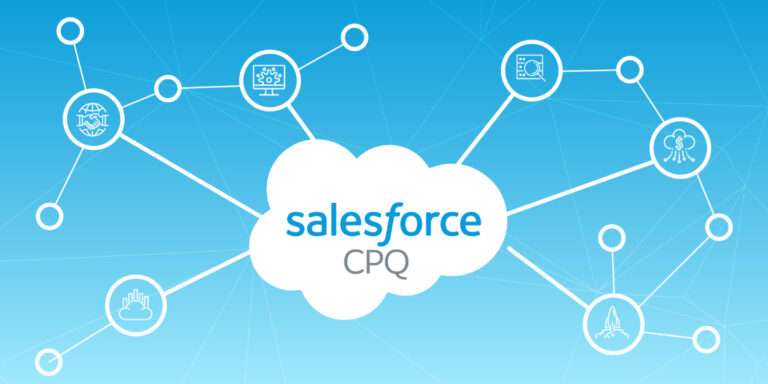Salesforce is a cloud-based customer relationship management (CRM) platform that has revolutionized the way businesses operate by streamlining their customer management process. The Salesforce platform offers a suite of tools and applications that enable organizations to manage their sales, customer service, marketing, and other business operations in one centralized location.
The Salesforce platform is highly customizable:
Allowing businesses to tailor it to meet their specific needs. The platform offers a range of tools that can be used to develop custom applications, integrate third-party solutions, and automate business processes. The platform is highly scalable, making it ideal for businesses of all sizes, from small startups to large enterprises.
One of the key features of the Salesforce platform is its ability to unify customer data from various sources into a single, 360-degree view. This enables businesses to gain insights into their customers’ behaviors, preferences, and needs, which can be used to create targeted marketing campaigns, improve customer service, and increase sales.
Salesforce offers a range of tools for sales management, including lead management, opportunity management, and sales forecasting. These tools enable sales teams to track their progress, prioritize leads, and collaborate with team members, increasing their efficiency and productivity.
The Salesforce platform also offers tools for customer service management, including case management, knowledge management, and customer self-service. These tools enable customer service teams to efficiently manage customer inquiries, resolve issues quickly, and provide a personalized customer experience.
The platform also offers a range of marketing automation tools, including email marketing, social media management, and lead nurturing. These tools enable businesses to create and execute targeted marketing campaigns, track their effectiveness, and optimize their strategies for maximum ROI.
Salesforce also offers a range of analytics tools that enable businesses to track their performance and gain insights into their operations. These tools can be used to analyze customer data, sales data, marketing data, and other key performance indicators, enabling businesses to make informed decisions and optimize their strategies for success.
It is highly extensible, allowing businesses to integrate third-party solutions and custom-built applications. This enables businesses to create a seamless workflow between their Salesforce platform and other business applications, improving their overall efficiency and productivity.
In addition to its core CRM functionality, Salesforce also offers a range of industry-specific solutions, including solutions for financial services, healthcare, retail, and more. These industry-specific solutions are tailored to meet the unique needs of businesses in specific sectors, enabling them to leverage the power of the Salesforce platform to improve their operations and stay ahead of the competition.
It is a cloud-based platform, which means that businesses can access it from anywhere with an internet connection. This makes it ideal for businesses with remote teams or those that need to access their customer data while on the go.
Overall, the Salesforce platform is an incredibly powerful tool that can help businesses of all sizes improve their customer management process, increase their efficiency and productivity, and gain valuable insights into their operations. Its highly customizable, scalable, and extensible nature makes it an ideal solution for businesses in any industry, and its industry-specific solutions make it a valuable tool for businesses in specific sectors.
One of the key benefits of the Salesforce platform is its focus on customer success. Salesforce offers a range of resources to help businesses get the most out of their platform, including online training, certifications, and a vibrant community of users and developers. This community offers support and resources for businesses looking to develop custom solutions or integrate third-party applications into their Salesforce platform.
Another key benefit of the Salesforce platform is its security and compliance features. The platform offers enterprise-grade security and compliance, including advanced encryption, secure access controls, and regular security audits. This ensures that businesses can trust the Salesforce platform to protect their customer data and comply with industry regulations.
The Salesforce platform also offers a range of pricing options to meet the needs of businesses of all sizes and budgets. Businesses can choose from a range of pricing tiers, from basic CRM functionality to more advanced features and industry-specific solutions. This makes the Salesforce platform accessible to businesses of all sizes, from small startups to large enterprises.
In conclusion, the Salesforce platform is a powerful tool for businesses looking to streamline their customer management process, increase their efficiency and productivity, and gain valuable insights into their operations. Its highly customizable, scalable, and extensible nature, combined with its focus on customer success and enterprise-grade security and compliance, makes it an ideal solution for businesses in any industry. Whether you are a small startup or a large enterprise, the Salesforce platform can help you improve your customer management process and stay ahead of the competition.
What is Salesforce Platform developer?
A Salesforce Platform Developer is an individual who specializes in developing and customizing applications on the Salesforce platform. The role of a Salesforce Platform Developer involves designing, building, and implementing solutions that meet specific business needs using Salesforce technologies and tools. Platform Developers work with various components of the Salesforce ecosystem to create applications, automate processes, and integrate systems.
Key responsibilities of a Salesforce Platform Developer may include:
- Custom Application Development: Creating custom applications using Salesforce’s declarative tools (such as Process Builder and Flow) and programmatic tools (such as Apex and Visualforce).
- Apex Development: Writing and optimizing Apex code, which is Salesforce’s proprietary programming language, to implement custom business logic, triggers, controllers, and web services.
- Visualforce Development: Designing and developing user interfaces using Visualforce, a markup language that allows for the creation of custom pages in Salesforce.
- Lightning Component Development: Building Lightning Components and Lightning Web Components to create modern, responsive, and interactive user interfaces.
- Integrations: Integrating Salesforce with external systems, databases, and third-party applications using APIs and middleware tools.
- Data Management: Implementing data management strategies, including data imports, data transformations, and data migrations.
- Automation: Designing and implementing automation solutions using tools like Process Builder, Workflow Rules, and Flow to streamline business processes.
- Testing and Debugging: Writing unit tests and performing debugging to ensure the quality and reliability of custom code and configurations.
- Security and Performance: Implementing security best practices and optimizing performance to ensure that applications are secure and responsive.
- AppExchange Development (Optional): Developing applications for the Salesforce AppExchange, which is a marketplace for third-party applications built on the Salesforce platform.
To become a Salesforce Platform Developer, individuals typically need to acquire knowledge and skills in areas such as Apex programming, Visualforce, Lightning components, and general Salesforce development practices. Salesforce offers certifications like the “Salesforce Certified Platform Developer” and “Salesforce Certified Platform Developer II,” which validate a developer’s proficiency in these areas.
Salesforce Platform Developers play a crucial role in extending and customizing the Salesforce platform to meet unique business requirements, enabling organizations to harness the full potential of Salesforce for their specific needs.




